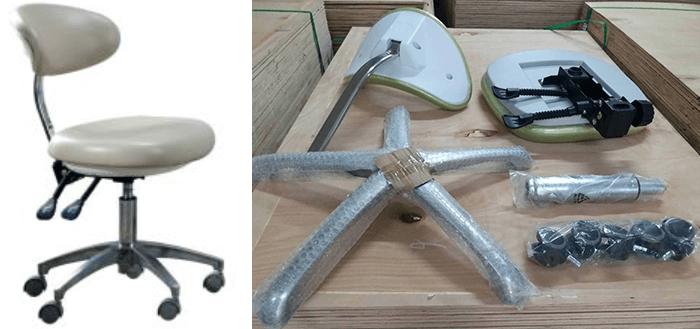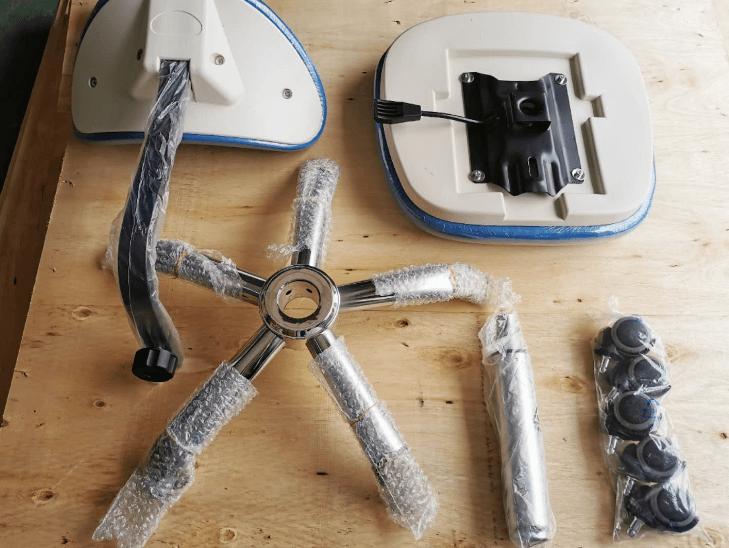Dentistry is a field that demands precision, focus, and endurance. As a dentist, your comfort and posture significantly impact your ability to deliver quality care. One crucial yet often overlooked aspect of a dental office is the dentist's stool.
The right stool not only ensures comfort but also promotes proper posture, reducing the risk of musculoskeletal issues.
Let's delve into the essential factors to consider when selecting the best dentist stool for your practice.
Ergonomics is key when it comes to dentist stools. An ergonomic stool is designed to support your body's natural posture, reducing strain on your back, shoulders, and neck.
Look for stools with adjustable features such as seat height, backrest, armrests, and lumbar support. The seat should be comfortably padded to prevent fatigue during long procedures.
A dental stool should offer both mobility and stability. It should move easily across different surfaces without compromising stability when seated. Consider stools with smooth-rolling casters suitable for various flooring types.
Additionally, some stools come with a locking mechanism to ensure stability during procedures.
The material of the stool affects its durability and maintenance. Opt for stools made from high-quality materials like medical-grade vinyl or leather, as they are easy to clean and disinfect.
Stools with a sturdy metal or high-grade polymer base provide durability and longevity, withstanding the daily wear and tear of a dental practice.

The shape and size of the seat play a vital role in comfort. A contoured seat that accommodates different body types and sizes ensures proper weight distribution and minimizes pressure points. Consider a wider seat with rounded edges to prevent discomfort or numbness during extended sitting periods.
Height adjustment is a crucial feature, allowing you to customize the stool to your preferred working height. A pneumatic or gas lift mechanism ensures smooth and effortless height adjustment. Ensure the stool can be adjusted to the ideal level for working on different dental procedures without straining your posture.
A supportive backrest is essential for maintaining proper posture and reducing back strain. Look for stools with adjustable backrests that provide adequate lumbar support. A backrest that contours to your spine's natural curve helps prevent slouching and supports the lower back during lengthy procedures.
Easy maintenance is vital in a dental setting where cleanliness is paramount. Choose a stool with a seamless or easy-to-clean design, minimizing areas where dirt and bacteria can accumulate. Removable or washable covers for the seat and backrest facilitate regular cleaning and disinfection.

While quality and comfort are paramount, your budget is a practical consideration. Evaluate your needs and invest in a stool that strikes a balance between quality, functionality, and cost-effectiveness. Remember, an ergonomic stool is an investment in your health and long-term productivity.
Before making a purchase, if possible, test different stools to gauge their comfort, adjustability, and overall suitability for your practice. Some suppliers offer trial periods, allowing you to assess the stool's performance in a real dental environment.
Finally, a dentist stool might seem like a minor aspect of a dental office, but its impact on your well-being and performance cannot be overstated. By considering the ergonomic features, mobility, durability, and maintenance aspects, you can select the perfect stool that supports you in providing excellent dental care.
Take the time to research, evaluate, and invest in the best dentist stool that complements your practice needs and promotes a healthy, productive work environment.